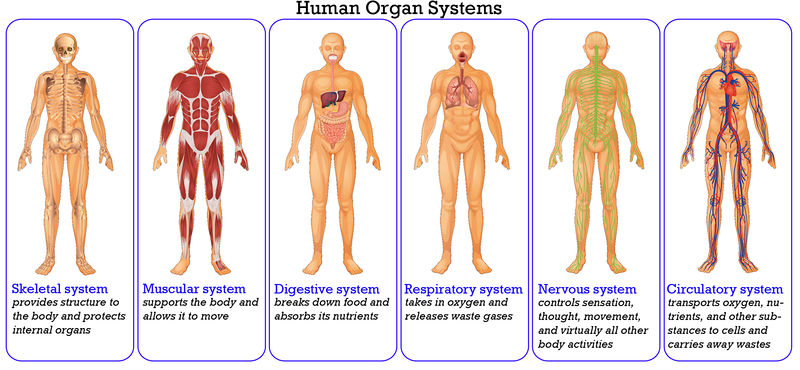Faith can Heal
Drugs
April 28, 2016Food
April 28, 2016Faith can Heal
If faith can move mountains, why can you not heal your own body?
I don’t have any body, this feeling that you have a body is absolutely wrong. The body belongs to the universe; you don’t have it, it is not yours. So if the body is ill or if the body is healthy the universe will take care of it. And a person who is in meditation should remain a witness, whether the body is healthy or ill.
The desire to be healthy is part of ignorance. The desire not to be ill is also part of ignorance. And this is not a new question — this is one of the oldest questions. It has been asked of Buddha, it has been asked of Mahavira; ever since there have been enlightened persons, the unenlightened have always asked this question.
Look… Jesus said faith can move mountains, but he died on the cross. He couldn’t move the cross. You or someone like you must have been present there waiting. The disciples were waiting because they knew Jesus, and he had been saying again and again that faith could move mountains. So they were waiting for some miracle to happen — and Jesus simply died on the cross. But this was the miracle: he could be a witness to his own death. And the moment of witnessing one’s own death is the greatest moment of being alive.
Buddha died of food poisoning. He suffered for six months continuously, and there were many disciples who were waiting for him to do a miracle. But he suffered silently and died silently. He accepted death.
There were disciples there who were trying to cure him, many medicines were given to him. A great physician of those days, Jivaka, was Buddha’s personal physician. He used to move with him wherever he went. Many times people must have asked, “Why does this Jivaka go with you?” But it was Jivaka’s own attachment. Jivaka was moving with Buddha because of his own attachment, and the disciples who were trying to help Buddha’s body remain alive longer in this world, even if only for a few days more, were also attached. For Buddha himself, illness and health were the same.
That doesn’t mean that illness will not give pain. It will! Pain is a physical phenomenon, it will happen. But it will not disturb the inner consciousness. The inner consciousness will remain undisturbed, it will remain as balanced as ever. The body will suffer, but the inner being will remain just a witness of the whole suffering. There will be no identification — and this I call the miracle. This is possible through faith. And no mountain is bigger than identification — remember. The Himalayas are nothing; your identification with your body is a greater mountain. The Himalayas may be moved or not moved through faith, that is irrelevant, but your identification can be destroyed. But we cannot conceive of anything which we do not know, we can think only according to our minds. We think according to where we are; the pattern remains the same.
Sometimes my body is ill, and people come to me and they say, “Why are you ill? You should not be ill; an enlightened person should not be ill.” But who told you that it is so? I have never heard about any enlightened person who was not ill. Illness belongs to the body. It has no concern with your consciousness or whether you are enlightened or not.
And sometimes it happens that enlightened persons are more ill than unenlightened ones. There are reasons. Now that they don’t belong to the body, they don’t cooperate with the body; deep down they have broken themselves from the body. So the body remains but the attachment and the bridge is broken. Many illnesses happen because of the separation that has happened. They are in the body but their cooperation is no longer there. That is why we say an enlightened person will never be born again — because now he cannot make any bridge with any body again. The bridge is broken. While he is in the body, then too, really, he is dead.
Buddha attained enlightenment when he was near-about forty. He died when he was eighty, so he lived forty years more. On the day he was dying, Ananda started crying and said, “What will happen to us? Without you we will fall into darkness. You are dying and we have not yet become enlightened. Our own light is not yet lit and you are dying. Do not leave us!”
Buddha is reported to have said, “What? What are you saying, Ananda? I died forty years ago. This existence was just a phantom existence, a shadow existence. It was running along somehow, but the force was not there. It was just a momentum from the past.” If you are pedaling a bicycle, and then you stop and there is no pedaling, you are not giving any cooperation to the cycle, it will go on moving for a little while just because of the momentum, the energy that you gave it in the past.
The moment someone becomes enlightened, the cooperation is broken. Now the body will take its own course. It has a momentum. From many lives in the past, momentum has been given to it. It has a life span of its own which will be completed, but now, because the inner force is no longer with it, the body is prone to be more ill than ordinarily. Ramakrishna died of cancer; Ramana died of cancer. To the disciples it was a great shock, but because of their ignorance they could not understand.
One thing more has to be understood. When a person becomes enlightened, this is going to be his last life. So all the past karmas and the whole continuum has to be fulfilled in this life. The suffering — if he has anything to suffer — will become intense. For you there is no hurry, your suffering will be spread out over many lives. But for a Ramana this is the last. All that is there from the past has to be completed. There will be an intensity of everything, of all karmas. This life will become a condensed life. Sometimes it is possible — this is difficult to understand — to suffer in a single moment the sufferings of many lives. In a single moment the intensity becomes such…because time can be condensed or spread out.
You know already that sometimes when you sleep you see a dream, and when you are awake again you know that you have been asleep for only a few seconds. But you have seen such a long dream. It is possible that even a whole life can be seen in a single dream. What has happened? In such a small period of time how could you see such a long dream? There is not a single layer of time as we ordinarily understand, there are many layers of time. Dream time has its own existence. Even while awake time goes on changing. It may not change according to the clock because a clock is a mechanical thing, but psychological time goes on changing.
When you are happy, the time flows fast. When you are unhappy, the time slows down. A single night can be eternity if you are in suffering, and a whole life can become a single moment if you are happy and blissful.
When a person becomes enlightened, everything has to be closed; this is a closing time. Many millions of lives have to be closed and all the accounts have to be cleared, because there will be no chance anymore. After his enlightenment an enlightened person lives in a different time altogether and whatsoever happens to him is qualitatively different. But he remains a witness.
Mahavira died of stomach pain, something like an ulcer — for many years he suffered. His disciples must have been in difficulty because they have created a story around it. They could not understand why Mahavira should suffer, so they have created a story which shows something about the disciples, not about Mahavira. They say that a person who had a very evil spirit, Goshalak, was the cause of Mahavira’s suffering. He threw his evil force on Mahavira and Mahavira absorbed it only because of his compassion — and that is why he suffered. This shows nothing about Mahavira but something about the difficulty of the disciples. They cannot conceive of Mahavira suffering so they had to find a cause somewhere else.
`One day I was suffering from a cold — it is my constant companion. So somebody came and he said, “You must have taken somebody else’s cold.” That doesn’t show anything about me, it shows something about him. It is difficult for him to conceive of me suffering. So he said, “You must have somebody else’s cold.” I tried to convince him, but it is impossible to convince disciples. The more you try to convince them, the more they believe that they are right. In the end he said to me, “Whatsoever you say I am not going to listen. I know! You have taken somebody else’s illness ”
What to do? The body’s health and illness is its own affair. If you want to do something about it, you are still attached to it. It will take its own course; you need not be much worried about it.
I am only a witness. The body is born, the body will die; only the witnessing will be there. It will remain forever. Only witnessing is something absolutely eternal — everything else goes on changing, everything else is a flux.”



